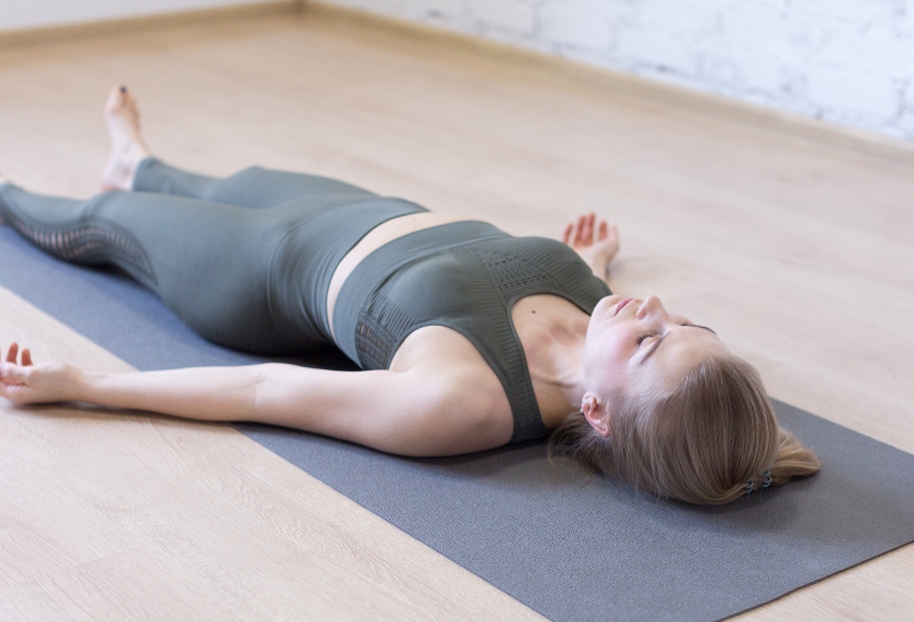It's no secret that stress and anxiety can take a toll on our mental and physical health. In fact, stress is on the rise around the world. While there are many ways to deal with stress and anxiety, progressive muscle relaxation is a very effective technique. This type of deep relaxation helps to release tension in the body and calm the mind. So, if you're looking for a way to reduce stress and promote relaxation, progressive muscle relaxation may be right for you. This technique is simple to learn and can be done anywhere, at any time.
What is Progressive Muscle Relaxation and how does it work?
Progressive Muscle Relaxation (PMR) is a form of deep relaxation that helps to release tension in the body by systematically tensing and relaxing all the major muscle groups. When done regularly, progressive muscle relaxation can help to reduce stress levels and promote a sense of calmness and well-being.
The benefits of Progressive Muscle Relaxation include:
- Reduced stress levels
- Improved sleep quality
- Increased feelings of calm and well-being
- Relief from tension headaches and other pain symptoms
- Reduced anxiety symptoms
The technique involves tightening and releasing muscles one at a time, starting with the feet and working up to the head. You can either do this manually or use an audio recording to guide you through the process. Try my guided progressive muscle relaxation video below:
Guided Progressive Muscle Relaxation Video
Learn about Progressive Muscle Relaxation (PMR) and follow along with my guided video to manage your anxiety and relieve tension and stress.
3 Ways progressive muscle relaxation can reduce anxiety
1. Progressive muscle relaxation can help reduce to anxiety by releasing tension in the body. When the muscles are tense, it can contribute to feelings of anxiety and stress. By relaxing the muscles, progressive muscle relaxation can help to improve blood circulation and promote a sense of calmness and well-being.
2. Progressive muscle relaxation can also help to improve sleep quality. When anxiety is high, it can often lead to difficulty sleeping. By relaxing the body with progressive muscle relaxation, it can help to promote a more restful sleep.
3. Lastly, progressive muscle relaxation can be a great way to manage stress levels. When anxiety is high, it can often trigger the "fight or flight" response in the body. Progressive muscle relaxation helps to activate the "relaxation response" which helps to calm the body and mind.
How to do Progressive Muscle Relaxation:
- Choose a quiet place to relax in. Make sure you won't be disturbed.
- Get comfortable - you can sit or lie down, whichever is most comfortable for you.
- Close your eyes and take a few deep breaths, focusing on calming yourself down.
- Begin by tensing the muscles in your feet for 5 seconds, then relax them for 5 seconds.
- Move on to your calves, tightening and relaxing them for 5 seconds each.
- Tighten and relax your thighs, buttocks, stomach, chest, and upper arms for 5 seconds each.
- Finally, tense and relax your face, scalp and neck muscles for 5 seconds each.
- Take a few deep breaths and relax completely before opening your eyes.
- Repeat as often as desired.
Alternatively, you can listen to my guided progressive muscle video
Tips for getting the most out of Progressive Muscle Relaxation:
- Practice regularly - aim to do PMR at least once a day for best results.
- Follow an audio guide - this can make it easier to stay focused during the exercise session.
- Visualise calmness - while tightening and relaxing each muscle group, visualise yourself becoming increasingly calm and relaxed.
- Use PMR when needed - if you feel overwhelmed or stressed, try doing a quick session of PMR to help calm yourself down.
- Don't force it - if you find it difficult to tense or relax certain muscles, don't worry about it - just move on to the next group. PMR is about releasing tension, not forcing it away.
How can Hypnotherapy and Progressive Muscle Relaxation help Anxiety & Stress?
Hypnotherapy is a form of therapy that uses suggestion and relaxation to achieve a trance-like state. This can be helpful in relieving anxiety and stress, as it allows the person to access subconscious and consider new helpful suggestions and changes to create new helpful habits and behaviours that reduce anxiety and stress. Progressive muscle relaxation can also be helpful in reducing anxiety and stress, the technique involves systematically tensing and relaxing all the major muscle groups in the body. When done regularly, progressive muscle relaxation can help to reduce stress levels and promote a sense of calmness and well-being.
How does Solution Focused Hypnotherapy work for Anxiety?
Solution Focused Hypnotherapy allows us to work together and focus on your future and find solutions to make positive changes one step at a time. It means that we don't need to explore your past or analyse problems. This approach can be very helpful in treating anxiety, as it allows the person to focus on the present and identify specific goals that can be achieved to reduced anxiety levels. Solution Focused Hypnotherapy is typically shorter in duration than traditional hypnotherapy, and results can be seen after just a few sessions.
Does Progressive Muscle Relaxation Improve Sleep?
Anxiety and stress can cause all sorts of physical problems like headaches, muscle tension, and gastrointestinal issues. But did you know that anxiety and stress can also lead to sleep problems?
People with anxiety often have trouble falling asleep or they wake up frequently during the night. This is because when we're anxious or stressed, our brains are in a state of arousal and it's difficult to relax enough to fall asleep. Progressive muscle relaxation is one technique that can help people to overcome these difficulties. When done regularly, progressive muscle relaxation can help to reduce turn improve overall mood and energy levels. If you're struggling with anxiety or stress progressive muscle relaxation is a great way to find some relief.
Longer term, if you would like some additional one to one support to overcome anxiety, stress or insomnia start by getting in touch to book your first session online. We'll explore your situation and tailor a hypnotherapy program to support your positive changes. Take your first step towards positive change now!







